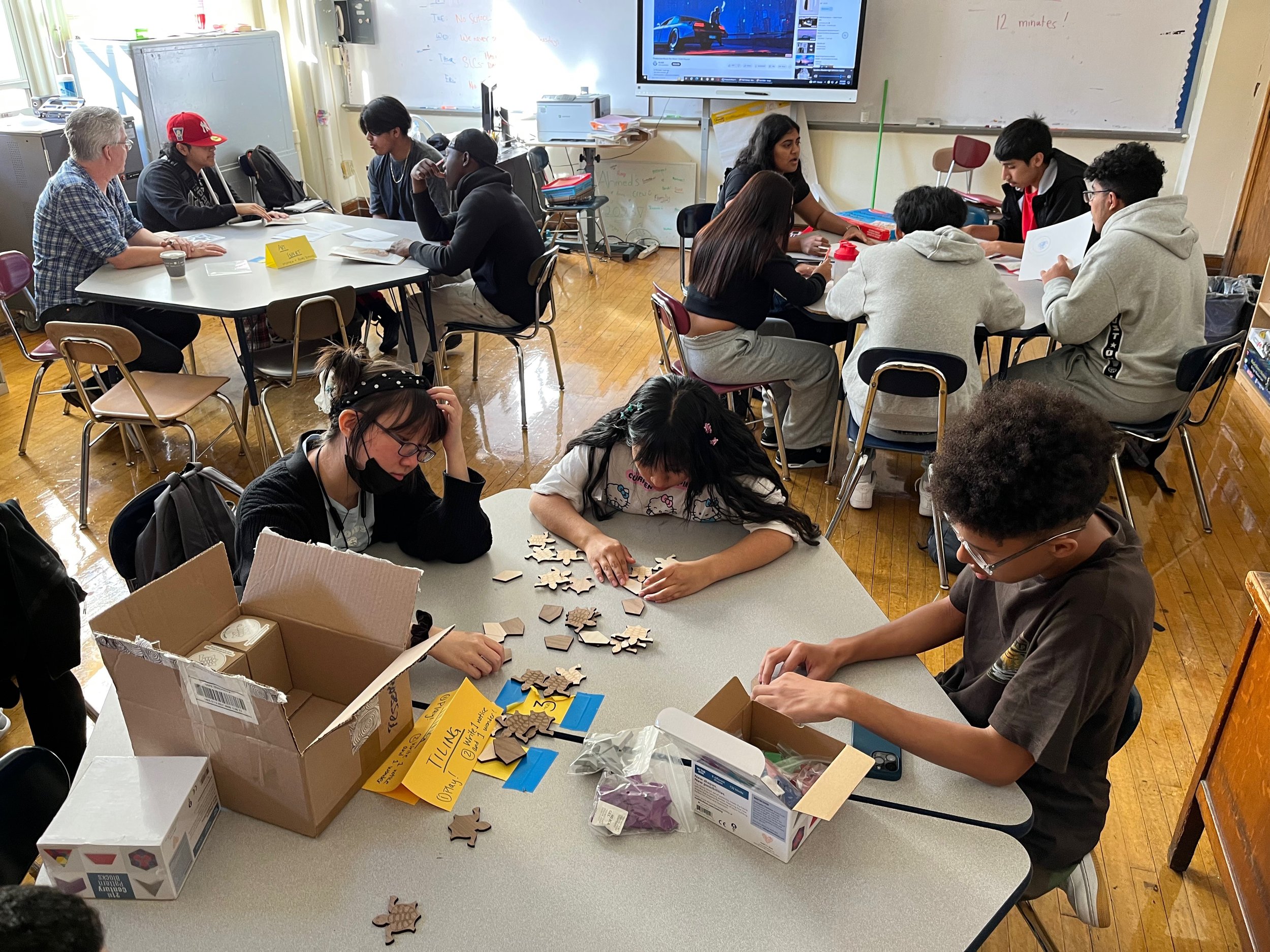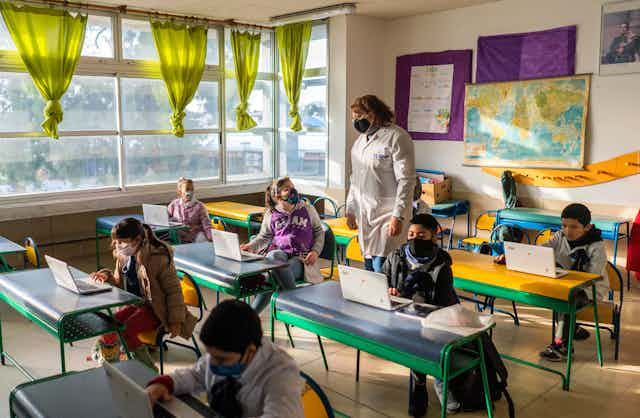Sign up with the Movement to Save Temecula Schools: Community Activity Needed!
Sign up with the Movement to Save Temecula Schools: Community Activity Needed!
Blog Article
Comprehending the Significance of Institutions in Child Growth and Area Development
Colleges' interaction with local areas via service-learning campaigns enhances the bond between family members and instructional organizations. This cooperative connection highlights the relevance of schools in nurturing energetic citizenship and lifelong knowing routines.
Academic Success
Academic success acts as a keystone of kid development, offering the structure whereupon future discovering and success are built. Colleges play a pivotal function in fostering this scholastic development, using structured environments where kids can acquire essential knowledge and cognitive skills. Standardized curricula ensure that trainees gain effectiveness in core topics such as maths, science, and language arts, which are critical for both college and specialist possibilities.
Along with presenting essential academic skills, colleges also grow essential reasoning, analytic capabilities, and intellectual inquisitiveness. These cognitive expertises are crucial for navigating complex real-world situations and adjusting to the ever-evolving needs of the modern-day office. Teachers, as facilitators of knowing, use diverse pedagogical strategies to provide to different learning styles, therefore optimizing specific student possibility.
Furthermore, scholastic success is carefully connected to self-confidence and inspiration. Children that experience academic accomplishments are a lot more likely to create a favorable self-concept and a lifelong interest for discovering. Schools additionally provide numerous resources, such as collections and innovation, which even more improve the instructional experience and prepare trainees for a technologically innovative culture.
Social Skill Advancement
Beyond scholastic success, the duty of institutions in social ability development is crucial. Schools work as a main venue for youngsters to find out and practice crucial social skills such as cooperation, conflict, and interaction resolution. In the structured setting of a class, pupils connect with peers, instructors, and other school staff, using countless possibilities to establish these important abilities.
Effective social skill development in schools is assisted in through team activities, collective jobs, and extracurricular programs. These communications help pupils recognize social norms, build empathy, and promote a sense of neighborhood. For example, team projects instruct trainees exactly how to interact towards a common goal, pay attention to various point of views, and navigate disputes constructively.

The farming of social skills during academic year lays a foundation for future individual and expert connections. Save Temecula Schools. As students develop, the capability to effectively collaborate and communicate comes to be increasingly essential, underscoring the college's crucial role in alternative kid development
Exposure to Variety
Exposure to variety in schools is essential to cultivating an inclusive attitude and widening pupils' point of views. Schools work as a microcosm of the wider culture, and running into varied societies, languages, and socioeconomic backgrounds within this setting gears up students with crucial abilities for browsing a progressively globalized world. This direct exposure urges empathy, minimizes bias, and promotes mutual regard among peers.
Diverse classrooms likewise improve social and cognitive advancement. Study indicates that trainees who communicate with peers from diverse histories exhibit much better problem-solving abilities and creativity. They find out to value different viewpoints, which improves class conversations and fosters a more vibrant understanding experience. Additionally, this understanding of diversity prepares trainees for future offices that worth multicultural competence.

Neighborhood Involvement
The advantages of diverse classrooms expand past the institution walls, promoting a solid feeling of neighborhood engagement among pupils. By engaging with peers from different social, socioeconomic, and ethnic histories, trainees get a broader viewpoint and a gratitude for diversity. This exposure urges them to end a knockout post up being energetic citizens that agree to add favorably to their areas.
Institutions that emphasize neighborhood interaction usually include service-learning tasks, which enable pupils to address real-world troubles while using academic abilities. These jobs not only enhance trainees' understanding of their coursework yet additionally impart a sense of duty and compassion. Furthermore, partnerships in between colleges and regional organizations provide students with chances to take part in neighborhood occasions, further strengthening their role as positive area participants.
Furthermore, adult and area involvement in schools reinforces the bond in between educational organizations and the areas they offer. Through these initiatives, colleges play a pivotal role in nurturing community involvement and cultivating social growth.
Lifelong Understanding Habits
Establishing long-lasting discovering routines is vital for a youngster's continuous development and flexibility in an ever-changing globe. Schools play a crucial duty in instilling these behaviors by creating an atmosphere that cultivates interest, critical thinking, and a love for knowledge. Through extracurricular tasks and diverse educational programs, instructors urge trainees to explore different topics, analyze information seriously, and apply their finding out to real-world scenarios.
Additionally, schools offer an organized setting where youngsters can establish self-discipline and time administration skills, both of which are critical for constant knowing. By stressing the value of setting goals, showing on progression, and adjusting approaches, universities prepare trainees to navigate the intricacies of grown-up life, guaranteeing they continue to be lifelong students and factors to culture.
Conclusion
In verdict, colleges are vital in promoting kid development and neighborhood growth by giving environments helpful to academic success, social ability development, and exposure to diversity. With collective tasks and communications, colleges improve crucial reasoning, empathy, and communication skills. Community engagement initiatives further reinforce the bond in between schools and neighborhood communities. Ultimately, colleges grow long-lasting understanding practices, outfitting individuals with the required knowledge and skills to add favorably Bonuses to culture.
In the organized atmosphere of a classroom, pupils engage with peers, educators, and other institution staff, using many chances to develop these important capabilities.
In essence, direct exposure to variety within colleges not only enhances individual trainees but likewise reinforces the social textile of the area as a whole.
The advantages of diverse classrooms prolong beyond the school walls, cultivating a strong sense of community engagement among students.Schools that highlight community interaction usually include service-learning tasks, which enable students to attend to real-world problems while using scholastic skills. Collaborations between schools and neighborhood companies like it offer pupils with chances to get involved in community occasions, further solidifying their duty as aggressive area participants.
Report this page